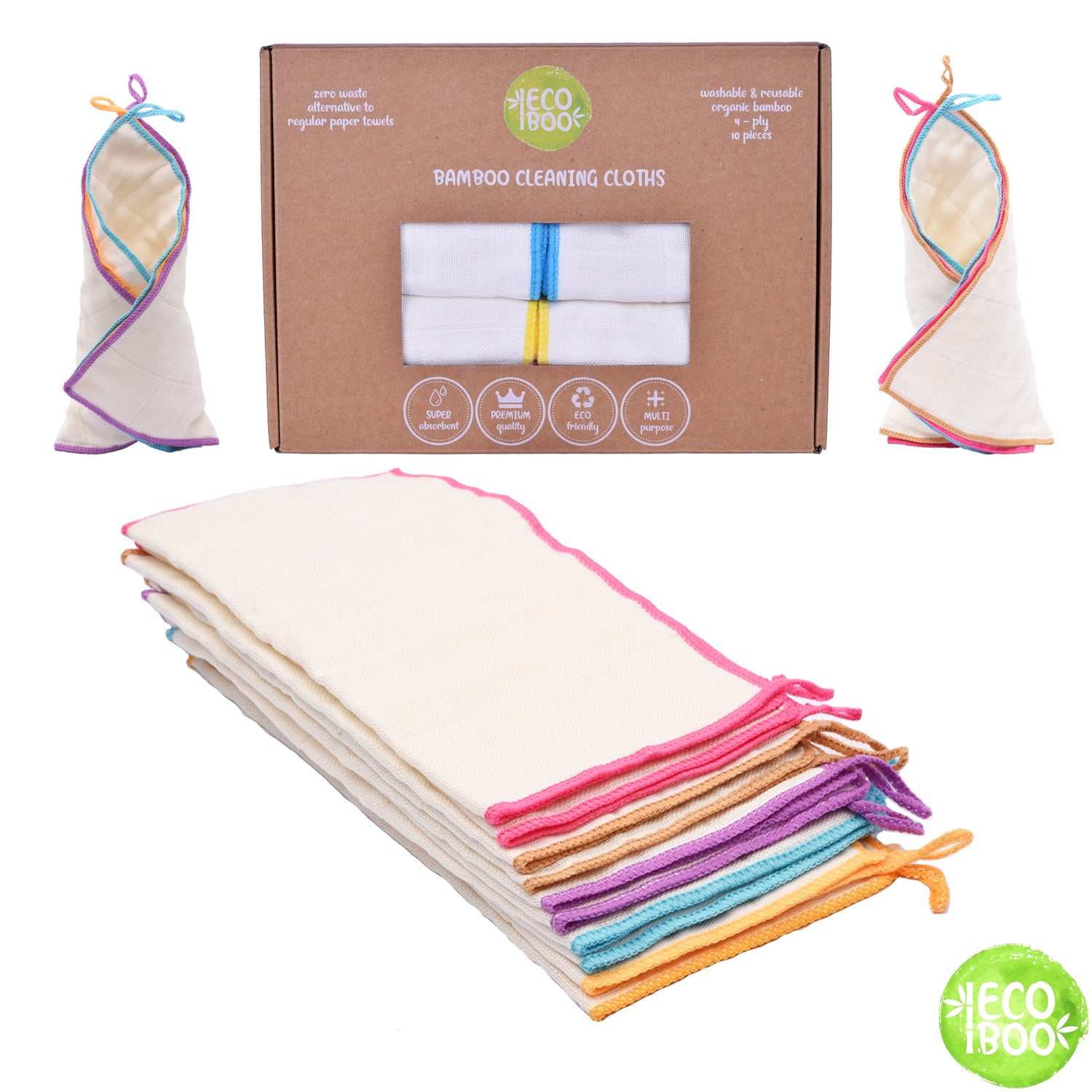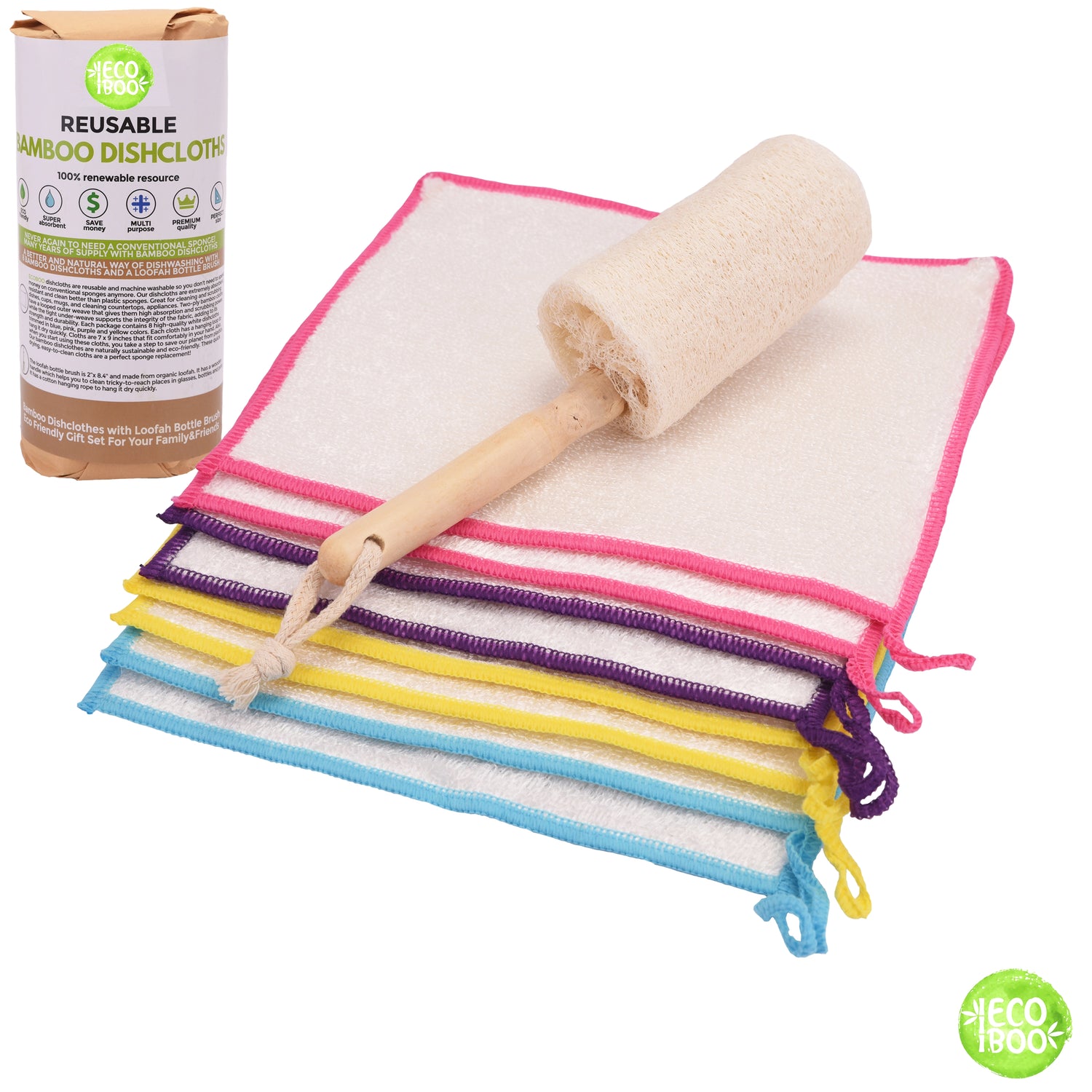I. Introduction
"Green Clean Routines" isn't just another buzzword in the eco-friendly lexicon; it's a way of life.
This term embodies the amalgamation of daily habits and choices that align with environmentally conscious principles.
It’s about ensuring that our daily actions, from the moment we wake up until we go to bed, reflect a commitment to the environment.
In an age of increasing environmental challenges, establishing such eco-conscious habits isn't just a trend; it's an urgent need.
By adopting a green daily routine, we are not only safeguarding our planet for future generations but also promoting healthier and more sustainable living for ourselves.
II. Morning Routine

Waking Up:
The trill of birds, the gentle sway of trees, or even the serene ambiance of a sunrise can be nature's way of waking you up.
Natural alarm clocks, like the dawn simulator, mimic sunrise to wake you up gently without the abrasive blare of conventional alarms.
Not only is this a gentler way to greet the morning, but it also aligns with our body's circadian rhythm, ensuring a more refreshed start to the day.
Moreover, embracing the morning sunlight is not just for aesthetics.
Natural lighting regulates our body's internal clock, boosts mood, and reduces the need for artificial lighting—saving energy in the process.
Bathroom Habits:
Stepping into the bathroom, make it a point to use eco-friendly toothbrushes, perhaps one made of bamboo, which is biodegradable and sustainable.
Pair it with organic toothpaste free from harmful chemicals, ensuring a healthy mouth and a happier planet.
Water is a luxury many take for granted.
By switching to low-flow faucets and showerheads, you can significantly conserve water, reduce your bills, and still enjoy a refreshing shower.
Complement this with natural soaps and shampoos that are devoid of parabens, sulfates, and other chemicals, ensuring your skin and hair get the care they deserve without harming Mother Earth.
Breakfast:
The first meal of the day can also be the greenest.
Opt for sustainable food choices like organic produce or locally sourced items.
Instead of reaching for disposable wraps or paper towels, use reusable containers for storing food and cloth napkins to clean up any spills.
And remember those food scraps?
Don't toss them in the trash—compost them.
Not only does composting reduce landfill waste, but it also gives back to the earth by enriching the soil.
III. Daytime Activities

Cleaning Up:
It's time to ditch those chemical-laden sprays and cleaners.
Natural cleaning products, such as those based on vinegar, baking soda, or essential oils, can be just as effective.
And while you're at it, swap out those disposable wipes for reusable cleaning cloths.
It’s a simple switch with profound environmental benefits.
Laundry:
Wash away your environmental concerns by opting for eco-friendly detergents that clean your clothes without polluting the waterways.
And once your clothes are washed, consider line drying them.
It uses no energy and gives your clothes a fresh, natural scent.
Lunch and Snacks:
A waste-free lunch is easier than you think.
Prepare your meals using fresh, organic ingredients, pack them in reusable containers, and say goodbye to disposable plastic cutlery.
Opt for cloth napkins and reusable silverware.
Moreover, making an effort to choose locally-sourced foods not only supports local farmers but also reduces the carbon footprint associated with transporting food from afar.
IV. Evening Routine

Dinner:
Evenings in an eco-conscious household often revolve around mindful dining.
Cooking can be both energy-efficient and flavorful with methods like slow cooking, steaming, or even using a pressure cooker.
These not only preserve the nutrients in your food but also consume less energy compared to traditional methods.
Moreover, there's a rising trend towards plant-based diets, and it's not just for health reasons.
A meal rich in vegetables, grains, and legumes has a lower environmental impact than meat-based dishes.
Water conservation is essential, even during cleanup.
Using a basin to wash dishes, as opposed to a running tap, can save significant amounts of water.
Relaxing:
As the sun sets, your home needn't be a beacon of wasteful energy consumption.
Opt for energy-saving LED lights.
Dimmable options are a bonus, allowing you to adjust the ambiance while conserving energy.
When it comes to relaxation, think naturally.
Light natural wax candles infused with essential oils for a calming ambiance.
And instead of succumbing to the blue light of electronic screens, delve into a good book.
The relaxation induced by reading is unparalleled and keeps you connected to the tactile world.
V. Bedtime Routine

Bathroom Habits Revisited:
Nighttime skincare is an intimate ritual.
Embrace products that are organic and devoid of harmful chemicals.
This ensures that while your skin rejuvenates at night, the environment isn't harmed.
Traditional floss is often made from nylon and comes in plastic packaging.
Consider switching to eco-friendly floss options made from silk or even bamboo fiber, which come in reusable or compostable containers.
Bedroom Habits:
There’s more to an eco-friendly bedroom than meets the eye.
Begin by unplugging electronics.
Standby power can be a significant source of energy waste, so it's a good habit to unplug devices not in use.
Your bed, the sanctuary you retreat to, can be green as well.
Opt for bedding made from organic cotton or bamboo.
These materials are not only sustainable but also breathable and comfortable.
Lastly, cultivate a sleep-inducing environment naturally.
A few drops of lavender essential oil can create a soothing atmosphere, and keeping the bedroom at a slightly cooler temperature can help induce sleep faster.
Remember, a good night's rest is essential for the body, and in an eco-conscious setting, it benefits the planet too.
VI. Throughout the Day
Recycling Practices:
One of the fundamental green routines is the proper segregation of waste.
Understand what can be recycled in your locality and set up distinct bins for paper, plastic, metals, and organic waste.
Regularly recycling materials prevents them from ending up in landfills, reducing greenhouse gas emissions and conserving natural resources.
Water Conservation:
Every drop counts.
It's essential to immediately attend to and fix leaks in faucets or pipes.
Simple practices, like collecting the runoff while waiting for the shower to warm up, can be reused for watering plants or flushing toilets.
Always be mindful of water usage, turning off taps while brushing or soaping hands, and consider collecting rainwater for gardening.
Energy Conservation:
While electrical appliances have undoubtedly made life easier, they can be significant energy consumers.
Cultivate the habit of turning off devices when they're not in active use.
This includes computers, fans, and lights.
Additionally, make the most of natural light.
Positioning workspaces near windows or using light colors in home decor can reduce the need for artificial lighting during the day.
VII. Conclusion
Our daily routines are more than just habitual actions; they're a reflection of our values and the legacy we wish to leave behind.
Embracing green practices is not just beneficial for the environment but enriching for our souls, reinforcing our connection to the world we inhabit.
If you're reading this, you're already on the path of awareness.
We urge you to pick even just one of these eco-conscious habits and incorporate it into your life.
The journey to a sustainable future begins with small steps, and every action, no matter how minute, plays a part in the grand tapestry of environmental preservation.
Remember: every conscious choice you make today paves the way for a healthier, more vibrant planet tomorrow.
Let's make each day count.






